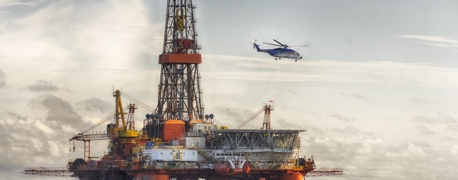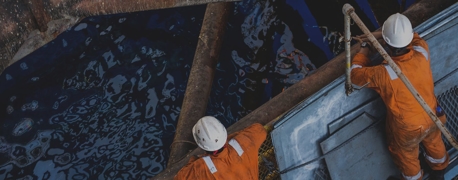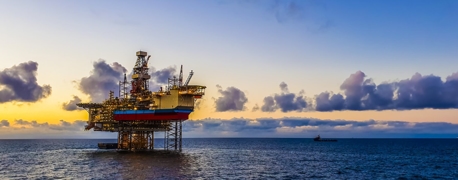Welding Safety a Must on Oil Rigs

Among the many dangerous jobs onboard offshore oil rigs, welding presents its own unique set of risks. In addition to other issues, if safety practices are neglected, a welding accident can lead to worker fatalities and endanger the integrity of the rig. With pressurized and flammable materials abundant, a welding disaster could cause a devastating explosion or another incident, threatening the safety of those on board.
Potential Welding Dangers
- Eye damage
- Fire and burns
- Toxic fumes and gases
- Hearing damage due to noise
- Radiation
- Metal fume fever
- Electric shock
- Poisoning from chromium and nickel in welding fumes
The oil and gas industry has adopted some requirements and techniques to minimize the risks associated with welding. the government has put federal and state regulations in place to enforce these safe practices. Inspections are frequently performed to ensure their implementation. From training exercises to equipment maintenance, many measures must be taken to reduce the dangers of welding, not just to the welders themselves, but also to the entire rig. The American Welding Society provides some Safety and Health Fact Sheets regarding the hazards of welding. Combustible materials pose the most relevant threat to oil rigs, as even the smallest fire can threaten a disastrous explosion. Although oil and gas are combustible, many other, more commonplace materials are also flammable, including cloth, trash, paper, wood, and dust. Even in a seemingly safe environment, one well-placed spark could ignite a catastrophe.
Safety Measures to Prevent Welding Accidents
- Use of fire-resistant covers to protect combustibles
- Removal of combustible materials from a 35-foot radius around the welding site
- Use of fire-resistant screens to enclose the work area
- Providing adequate work area ventilation to prevent build-up of flammable items
- Disposal of hot slag in an approved container
- Keeping fire-extinguishing equipment near the work area
- Training workers in emergency procedures and fire extinguishing techniques
- Having a fire-watcher in the work area for at least 30 minutes after work is completed
Employers are responsible for implementing and enforcing safe work practices that protect individual workers and the rig as a whole. If you believe that the safety of crew members may be at risk, or an injury has occurred through unsafe welding, an attorney may be able to help you. Arnold & Itkin has guided many oil rig workers, including welders, who have been hurt while on the job. We can help you determine what options are available to you. Contact our firm today to learn how we can be of assistance.
- Categories


